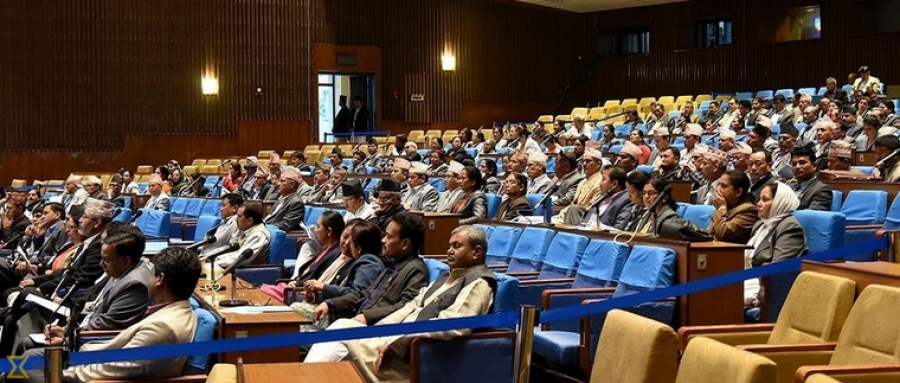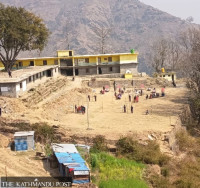National
Ill-timed trust vote may scupper pre-budget session
Avoiding the pre-budget discussion is like barring people from participating in the budget process, a former Parliament Secretariat official says.
Binod Ghimire
The timing of Prime Minister KP Sharma Oli’s move to seek a vote of confidence in the House of Representatives has created a situation for the federal budget to be presented without holding pre-budget discussion.
Rule 142 (4) of the House of Representatives Regulations says pre-budget discussion has to be completed at least 15 days before the national budget is tabled in Parliament. The Constitution of Nepal makes it mandatory for the budget to be presented on Jestha 15 (May 29 this year). However, 16 days before the budget day, it is still uncertain when the budget session commences.
The federal parliament must have completed the pre-budget discussion by Friday as per the parliament regulations. “I don’t see any possibility for the pre-budget discussion this year,” Gopal Nath Yogi, secretary at the House of Representatives, told the Post. “It seems the budget will be presented without pre-budget discussion.”
Last year, the pre-budget discussion had begun on May 10. But this year, the Oli government called a one-day session on May 10 for the vote of confidence in the lower house. Oli lost the trust vote as only 93 among 271 lawmakers in the house stood for his continuation, opening the process for the formation of a new government.
Political parties are busy in numbers games for government formation at a time when Parliament should have been busy with pre-budget discussion. Officials at the secretariat said Oli’s timing for the vote of confidence was wrong as it obstructed the pre-budget discussion. “Parliament would have done its job had Oli decided to seek the trust vote a week earlier,” said a senior official at the secretariat on condition of anonymity.
Experts on parliamentary affairs say there is a reason for pre-budget deliberation as it directs the government not to distract from the core budgetary principles. Preparing the budgetary plans targeting the people from the lower strata, delegating the budget and authority to the local governments to carry out smaller projects and keeping larger projects with the federal government are among the budgetary principles. Pre-budget discussion is also expected to shape the fiscal, budgetary and monetary policies of the government as recommended by the people’s representatives, according to experts.
“The pre-budget discussion was designed for the concerns of lawmakers, the representatives of the sovereign people, to be addressed in the budget,” Som Bahadur Thapa, a former secretary at the Parliament Secretariat, told the Post. “Avoiding the pre-budget discussion is tantamount to barring people from participating in the budget process.”
Though there is no legal clarity on how long the pre-budget discussion goes, it normally continues for a week. As Oli voluntarily decided to seek the vote of confidence, Thapa says, he could have done it at any time without affecting the pre-budget discussion.
Oli on May 2 decided to seek the trust vote while he was still enjoying a majority as the CPN (Maoist Centre) hadn’t withdrawn its support extended to the government in February 2018. The Maoist Centre withdrew its support only on May 5, three days after Oli decided to call a day-long session of the lower house for May 10 for the vote.
The President on the government’s recommendation summons and prorogues the House session.
“Oli could have sought the trust vote in the budget session. The decision to schedule the vote on May 10 was wrong,” Tara Nath Ranabhat, former Speaker of the House of Representatives, told the Post. “However, it is good that the Oli government didn’t proceed with the budgetary process after losing the vote of confidence.”
He said it is good to allow the upcoming government to decide on the budgetary issues.
Budget is presented after the pre-budget discussion and endorsement of the government’s policies and programme. The president presents the policies and programmes in the joint meeting of the House of Representatives and the National Assembly. Unlike for the pre-budget discussion, there is no deadline for the presentation of the policies and programme except that it is presented before the budget.
“Presentation of the budget without the pre-budget discussion would be yet another move by the government to make arbitrary decisions ignoring the legal provisions,” said Thapa.




 27.41°C Kathmandu
27.41°C Kathmandu














